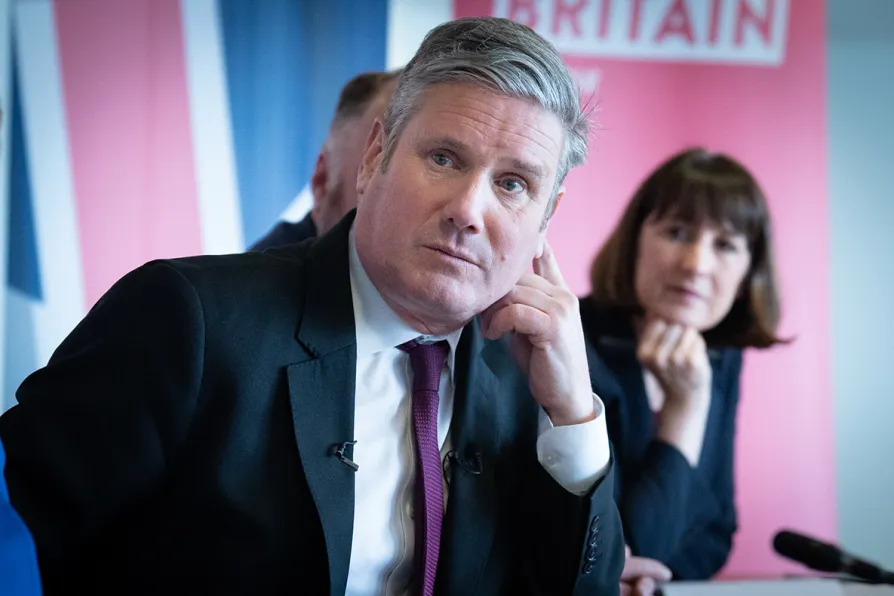RICHARD BURGON MP speaks to Ben Chacko about the Labour right’s complicity in the Mandelson scandal and the need for a total break with Starmerism if the party is to defeat Reform

 Labour leader Sir Keir Starmer chairs a meeting with shadow chancellor Rachel Reeves where he addressed 22 new local council leaders at the headquarters of the Labour Party in London, May 9, 2023
Labour leader Sir Keir Starmer chairs a meeting with shadow chancellor Rachel Reeves where he addressed 22 new local council leaders at the headquarters of the Labour Party in London, May 9, 2023
BACK in February, I asked: “Will Rachel Reeves really spend £28 billion a year on a Green Prosperity Plan?” It’s worth asking again because Labour’s most stupid rightwingers are beginning to rally against even this thoroughly centrist plan.
Reeves’s plan is, broadly, that a future Labour government will encourage the growth of greener British manufacturing, along with better insulation and other energy-saving measures, through a mixture of government and private investment, tax breaks and other incentives.
To get the plan off the ground, Reeves has to make the argument that investment isn’t a “waste.” If you own an asset, it isn’t the same as “spending too much money.” If you buy a valuable asset you still have your “money,” only it is now in the form of something that might help you, do you good, or even save you more money. It is OK to borrow to invest, as long as your investment is sound.















